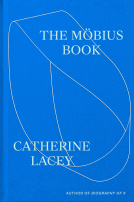
Mahagony
A Novel
by Édouard Glissant
This title was previously available on NetGalley and is now archived.
Send NetGalley books directly to your Kindle or Kindle app
1
To read on a Kindle or Kindle app, please add kindle@netgalley.com as an approved email address to receive files in your Amazon account. Click here for step-by-step instructions.
2
Also find your Kindle email address within your Amazon account, and enter it here.
Pub Date Jan 01 2021 | Archive Date Jan 01 2021
Talking about this book? Use #Mahagony #NetGalley. More hashtag tips!
Description
Édouard Glissant’s novels, closely tied to the theories he developed in Poétique de la Relation (Poetics of relation), are rich explorations of a deported and colonized people’s loss of their own history and the ever-evolving social and political effects this sense of groundlessness has caused in Martinique. In Mahagony Glissant identifies both the malaise of and the potential within Martinican society through a powerful collective narrative of geographic identity explored through multiple narrators. These characters’ lives are viewed back and forth over centuries of time and through tales of resistance, linked always by the now-ancient mahogany tree.
Attempting to untangle the collective memory of Martinique, Mathieu, the contemporary narrator, creates a conscious history of these people in that place—a record that unearths the mechanics of misrepresentation to get at the fundamental, enduring truths of that history, perhaps as only the mahogany tree knows it.
Advance Praise
“Mahagony gives a gripping fictional embodiment of Édouard Glissant’s literary and cultural theory. It is the indispensable pivot between his abstract thought, his poetry, and his engagement with the history of the postcolonial world. Betsy Wing is Glissant’s foremost translator; she is our best guide through the mangrove of the Martinique master’s body of work.”—A. James Arnold, professor emeritus of French at the University of Virginia
“Mahagony is a crucial monument to the ever-evolving changes defined by Édouard Glissant’s Poétique de la Relation. . . . Betsy Wing has rendered the stylistic complexities of Glissant’s writing while preserving the explosive life that emanates from every instant of this important work . . . resulting in an eminently readable text whose poetic power, charm, and subtlety has been faithfully and elegantly preserved. A magnificent accomplishment.”—Alexandre Leupin, Phyllis M. Taylor Professor in French Studies at Louisiana State University
Available Editions
| EDITION | Other Format |
| ISBN | 9781496201782 |
| PRICE | $19.95 (USD) |
| PAGES | 192 |
Featured Reviews
I confess that I knew next to nothing about Édouard Glissant or the land and people whose history he attempts to reconstruct in his work when I started reading Mahagony, and was pleasantly taken aback by the rich poetic and political texture in this novel's exploration of the suffering, resistance, and collective memory of Martinique.
For those as clueless as I was: Martinique is an island in the Lesser Antilles region of the Caribbean that is occupied and run as an integral part of the French Republic; Glissant renowned as one of its most influential thinkers and commentators. In Mahagony, he attempts to explore the collective memory of a deported and colonised people in relation with the land they were once enslaved on. Whereas time in the novel is slippery and often indefinable, it rests ever so often in particularly significant periods in Martinican history: 1815, at the end of the Napoleonic wars when the territory was returned to France by Britain; 1943, during the second World War and the Battle of the Caribbean; and the 1970s, when a pro-independence movement rose up in the region and was brutally suppressed.
The history and resistance of the novel's multiple narrators is linked inextricably with an old Mahogany tree which both participates in and stands witness to it, a marker of both change and permanence—Glissant, like many others, saw the nature-culture boundary as an exploitative Western colonial construct, and its destabilisation emerges as one of the defining features of his fiction.
An equally important feature in Mahagony is its rare synthesis of textual complexity and emotional intensity which gives the writing the consistency of prose poetry. This; alongside the character of Mathieu and his consciousness as an author wading against misrepresentation; adds to the sense of a world that extends beyond our representations of it, a reality obscured by the struggles, changes, and irretrievable losses (of history, of language, of ones own origins) that dominate it. This also marks a resistance to cultural and imperial domination: Glissant's opacity refuses to allow the colonisers the opportunity to understand (or interpret) the 'other' in relation to Western frames of reference and to thereby overpower them.
Moreover, the insertion of real historical figures—such as that of Pierre-Just Marny—alongside fictional ones (Mani and Gani) allows the author to emphasise the struggle and presence of the unnamed and the unmarked (slaves) that is lacking in all official records of history. This setting straight of the record by the likes of Hégésippe, as well as the contemporary narrator Mathieu, becomes even more significant given how slaves were disallowed literacy, and sheds light on why that was.
Betsy Wing's translation from the original French must also be commended, for retaining the poetic voice of Glissant's remarkable novel. I hope it helps lift the author out of his relative obscurity in the anglophone world, not least because his effortless blending of discourses fictional, poetic, and political.
I received an electronic ARC of this book via NetGalley.
This is not an easy book to assign a star rating.
It's beautifully written--the language is poetic, and as the story and characters shift through time and perspective, the writing itself reflects this. This is a credit to both Glissant and to translator Betsy Wing.
The book itself is not always pleasant--but that is part of the point. The narrative dips back and forth through time, and deals with themes of slavery, colonization, sexual exploitation, etc. in Martinique. The shifting narrators and time periods can become somewhat confusing to the reader, and I think it is this more than anything else that made this relatively short book take me a fairly long time to read--that, along with the extended discussion of narrator vs. author toward the beginning of the novel.
It was worth reading. It would be worth reading again, with a little more background on Glissant's other work and the history of Martinique, topics of which I am rather woefully ignorant. It's the kind of book that I suspect I would enjoy greatly in a literature class, with the guidance and additional context such a setting would provide.
 Helen K, Reviewer
Helen K, Reviewer
A clearly masterful exploration of the legacy of slavery in Martinique -- not easy to read but rather a text to be studied.
 Reviewer 742777
Reviewer 742777
It's a complex book. Édouard Glissant is a masterful theorist, and "Mahagony" showcases Glissant's extraordinary talent for weaving powerful narratives around the complex themes of identity, history, and resistance.The novel's exploration of loss and groundlessness, central to the Martinican people's history, is both poignant and deeply moving.





